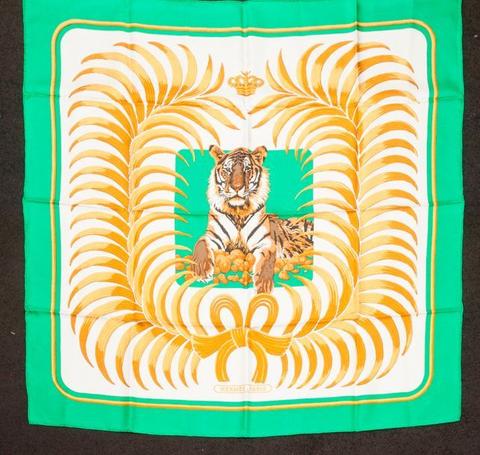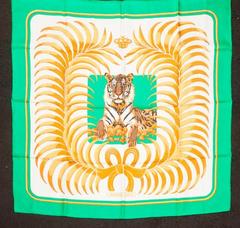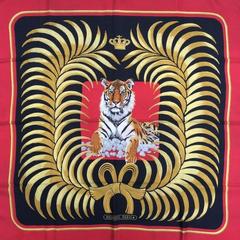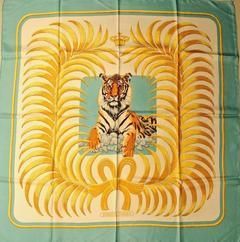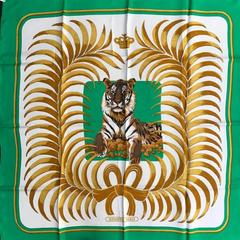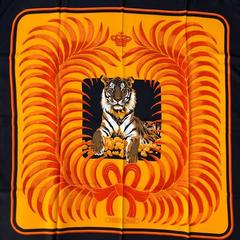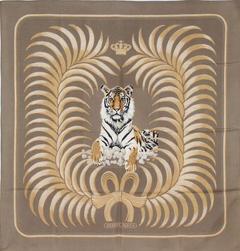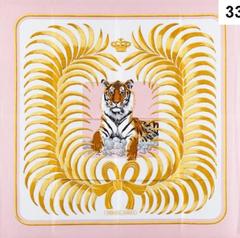Tigre royal
Designed by Christiane Vauzelles
First edition in 1977
Login or Register to get extra informations (rarity, sku, original prices ...)
The scarf TIGRE ROYAL features a majestic, impassive tiger posing in a frame reminiscent of a showcase. A crown floats above its head, symbolising its nobility and royal allure. Two golden palms on either side echo the stripes of its coat and suggest the ornate ceremonial dress of a dignitary.
The Bengal Tiger, or Royal Bengal Tiger, is a magnificent and powerful wildcat; it has 7.5-centimetre-long canines, measures anywhere from 1.80 to 2.80 meters from nose to tail and weighs between 150 and 250 kilograms. It can cover 10 meters in one graceful bound, is an excellent swimmer and loves the water. A solitary animal, it thrives in jungles, wet forests and the swampy mangroves of the Ganges Delta. It can also be found in the Himalayan forests at the edge of the snow.
In India, up until the mid-20th century, nabobs hunted Bengal Tigers and peasants poisoned them to protect their livestock. Between 1920 and 1930, the wildcats devoured hundreds of people (“man eating” tigers are anything but a myth!). Today, Bengal Tigers are protected in nature reserves and their number has risen to approximately five thousand.
The scarf TIGRE ROYAL features a majestic, impassive tiger posing in a frame reminiscent of a showcase. A crown floats above its head, symbolising its nobility and royal allure. Two golden palms on either side echo the stripes of its coat and suggest the ornate ceremonial dress of a dignitary.
The Bengal Tiger, or Royal Bengal Tiger, is a magnificent and powerful wildcat; it has 7.5-centimetre-long canines, measures anywhere from 1.80 to 2.80 meters from nose to tail and weighs between 150 and 250 kilograms. It can cover 10 meters in one graceful bound, is an excellent swimmer and loves the water. A solitary animal, it thrives in jungles, wet forests and the swampy mangroves of the Ganges Delta. It can also be found in the Himalayan forests at the edge of the snow.
In India, up until the mid-20th century, nabobs hunted Bengal Tigers and peasants poisoned them to protect their livestock. Between 1920 and 1930, the wildcats devoured hundreds of people (“man eating” tigers are anything but a myth!). Today, Bengal Tigers are protected in nature reserves and their number has risen to approximately five thousand.
Help us enhance Scarf Sage Hermès scarf collection by contributing additional information or higher quality images.
